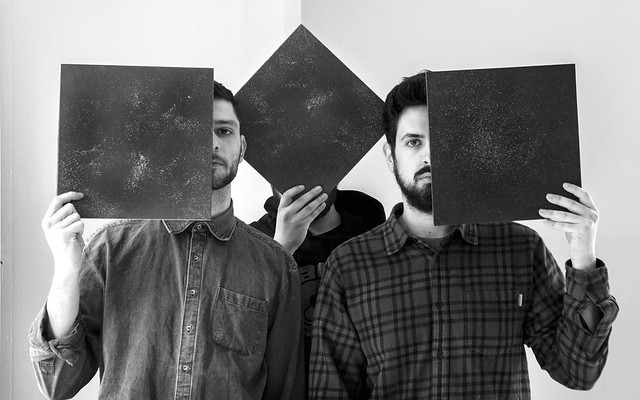Echo Spaces // Ambient of the 90s

At its best ambient music can gaze outwards and evoke the great unknown of the cosmos, and simultaneously provide the stimulus for an inwards journey into the psyche - an exploration of the notion that in each mind is contained the whole universe. It's greatest leaps occurred in the early 1970s, acts like Popul Vuh, Tangerine Dream and Klaus Schulze all venturing into the beatless electronic unknown before the actual term 'ambient' was widely popularised by Brian Eno after some lengthy sessions with Cluster's Deiter Moebius and Hans-Joachim Roedelius.
Throughout the genre's many developments, the 1990s was arguably one of the most pivotal. Through a period of widespread sonic experimentation in electronic music, improving/cheapening electronics led to all manner of stylistic combinations, some terrible, some genius. The latter half of the decade saw techno begin to branch out into ambient, acts like Gas, Fluxion and Vainqueur incorporating heat-soaked soundscapes into the infinite march of 4/4 drums. An interest in the genre was similarly shown by some of the biggest pinups of British electronic music, such as Aphex Twin or The Orb.
To begin our latest series looking at past records from different musical movements, ‘Echo Spaces’, we decided to compile three cuts from the 1990s’ ambient indulgences. This list is certainly not meant to be a reduction of the decade's greatest ambient achievements, just three slightly lesser known highlights we thought might be worth shedding light on.
###Steve Be Zet – Archaic Modulations (Recycle or Die, 1993)
Stevie Be Zet’s Archaic Modulations is an intimate listen that seems to address the listener personally, yet which is spiked with the coldness of distance, of the scale of things that outstrip us in space, time, and comprehension. On a more earthly level, Archaic Modulations is one of a series of under-appreciated ambient records from the 1990s on short lived German label Recycle or Die. Although Stevie Be Zet, alias of Steffen Britzke, often produced techno and trance (new age track titles such as ‘Maya & Aliens’ are a giveaway), Archaic Modulations benefits from being largely beatless, foregrounding Britzke’s lush melodies. The fantastic album artwork – a painting by Elisabeth Ernst – hazily depicts a subway train facing into the black abyss at the end of the platform. This metropolitan scene is devoid of any recognisable faces, and the music on Archaic Modulations likewise captures the sense of urban isolation in a world of machines that has been a theme of electronic music since Kraftwerk’s ‘Computer Love’.
Words by Robert Heath
###DATacide - Flowerhead (Rather Interesting, 1995)
Given the ultra-digitalised, quick-witted musings of the Atom™ project, you'd probably be surprised to know that the man behind the project, Uwe Schmidt, was the co-author of DATacide in the mid-90s, a fairly unashamed exploration into the more psychedelic side of electronic music. If you needed any convincing, just take a look at their album covers - they make Pink Floyd sleeves look like office ceiling tiles in comparison. Between Schmidt and his collaborator Tetsu Inoue, the project ran through the mid-to-late 90s, getting progressively weirder with every release, culminating in Ondas, which features everything from squeaking electronics to lip-trumpet solos. It is with their 1995 album Flowerhead where Schmidt and Inoue really seemed to land on their niche however, amalgamating glacial ambience, stargaze techno and a love for electronic eccentricities into a full length which has as much in common with free-jazz and '60s psychedelia as it does chin-stroking electronics.
Words by Theo Darton-Moore
###Biosphere - Substrata (All Saints Records, 1997)
Substrata cemented Biosphere as founder of the ‘arctic ambient’ sound. A mountain-climber himself, many of the sounds on this album are field recordings atop Norwegian summits. The record itself centres on themes of solitude, memory and the bitter cold. In the same way that Joy Division sounded somehow dead and empty, Substrata also has an oddly ‘icy’ timbre that gets right to your bones. Each surge of sound is like a blast of wind in a vast tundra.
There is also a strange psychological element to the record. Mythical quotes are woven throughout from Twin Peaks and recordings of a Russian Telepathist. Debussy once wrote that the job of musicians is to have the listener “dreaming of an imaginary country […] one that cannot be found on the map.” Substrata does just this; linking arctic settings with undertones of the subconscious. The crooning on ‘Poa Alpina’ and the soft gusts of ‘Kobresia’ leave you longing for a place you have never been.
Words by George McVicar
- Published
- Nov 8, 2015
